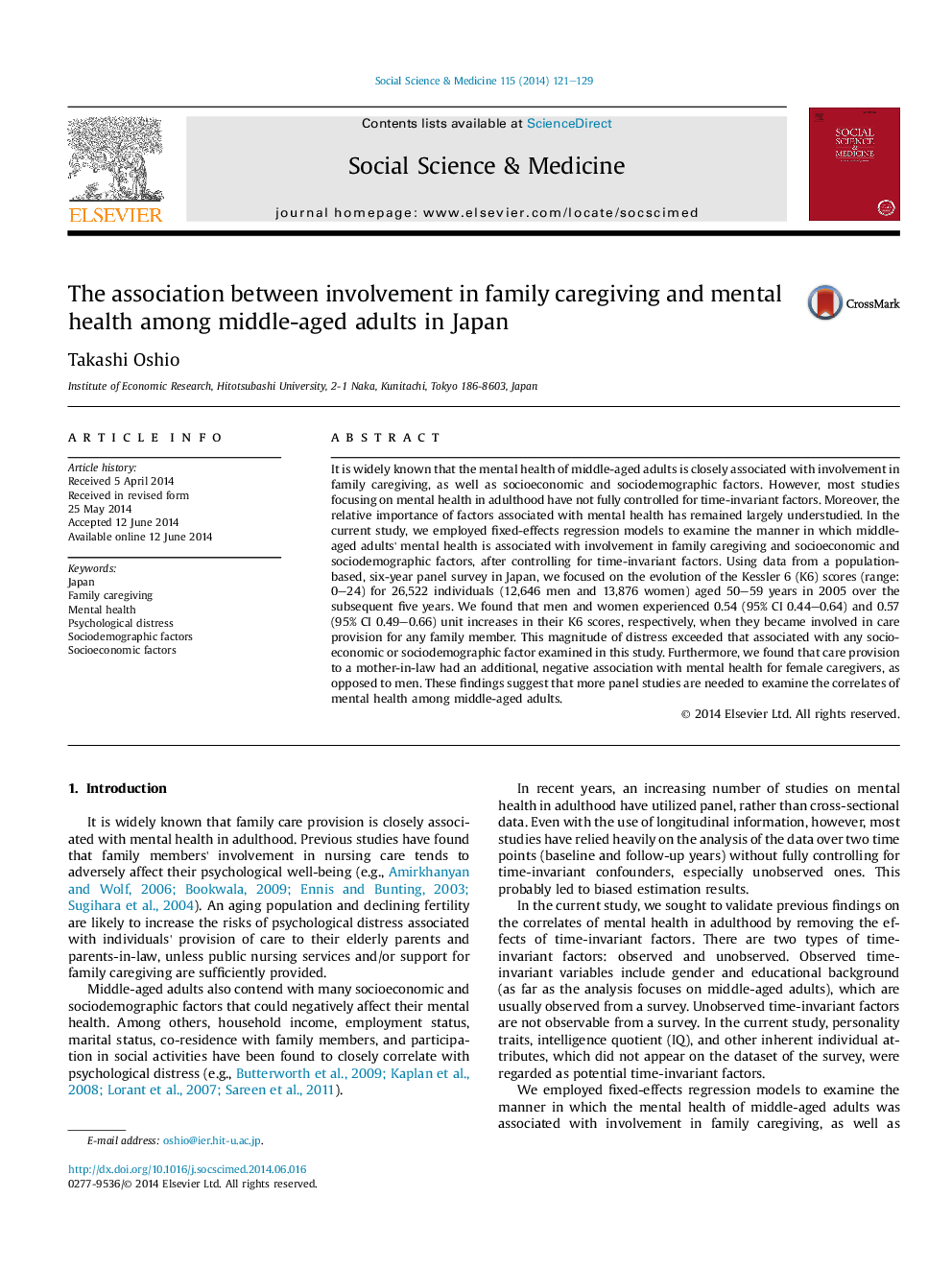| Article ID | Journal | Published Year | Pages | File Type |
|---|---|---|---|---|
| 952275 | Social Science & Medicine | 2014 | 9 Pages |
•Mental health is negatively associated with family caregiving.•Family caregiving is more stressful than poverty and unemployment.•Caring for mothers-in-laws amplifies female caregivers' distress.
It is widely known that the mental health of middle-aged adults is closely associated with involvement in family caregiving, as well as socioeconomic and sociodemographic factors. However, most studies focusing on mental health in adulthood have not fully controlled for time-invariant factors. Moreover, the relative importance of factors associated with mental health has remained largely understudied. In the current study, we employed fixed-effects regression models to examine the manner in which middle-aged adults' mental health is associated with involvement in family caregiving and socioeconomic and sociodemographic factors, after controlling for time-invariant factors. Using data from a population-based, six-year panel survey in Japan, we focused on the evolution of the Kessler 6 (K6) scores (range: 0–24) for 26,522 individuals (12,646 men and 13,876 women) aged 50–59 years in 2005 over the subsequent five years. We found that men and women experienced 0.54 (95% CI 0.44–0.64) and 0.57 (95% CI 0.49–0.66) unit increases in their K6 scores, respectively, when they became involved in care provision for any family member. This magnitude of distress exceeded that associated with any socioeconomic or sociodemographic factor examined in this study. Furthermore, we found that care provision to a mother-in-law had an additional, negative association with mental health for female caregivers, as opposed to men. These findings suggest that more panel studies are needed to examine the correlates of mental health among middle-aged adults.
